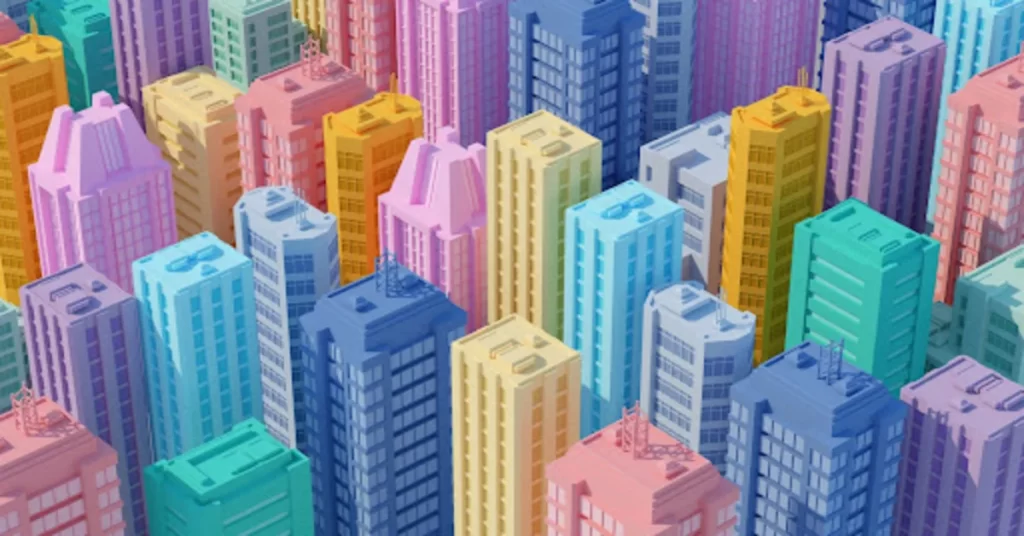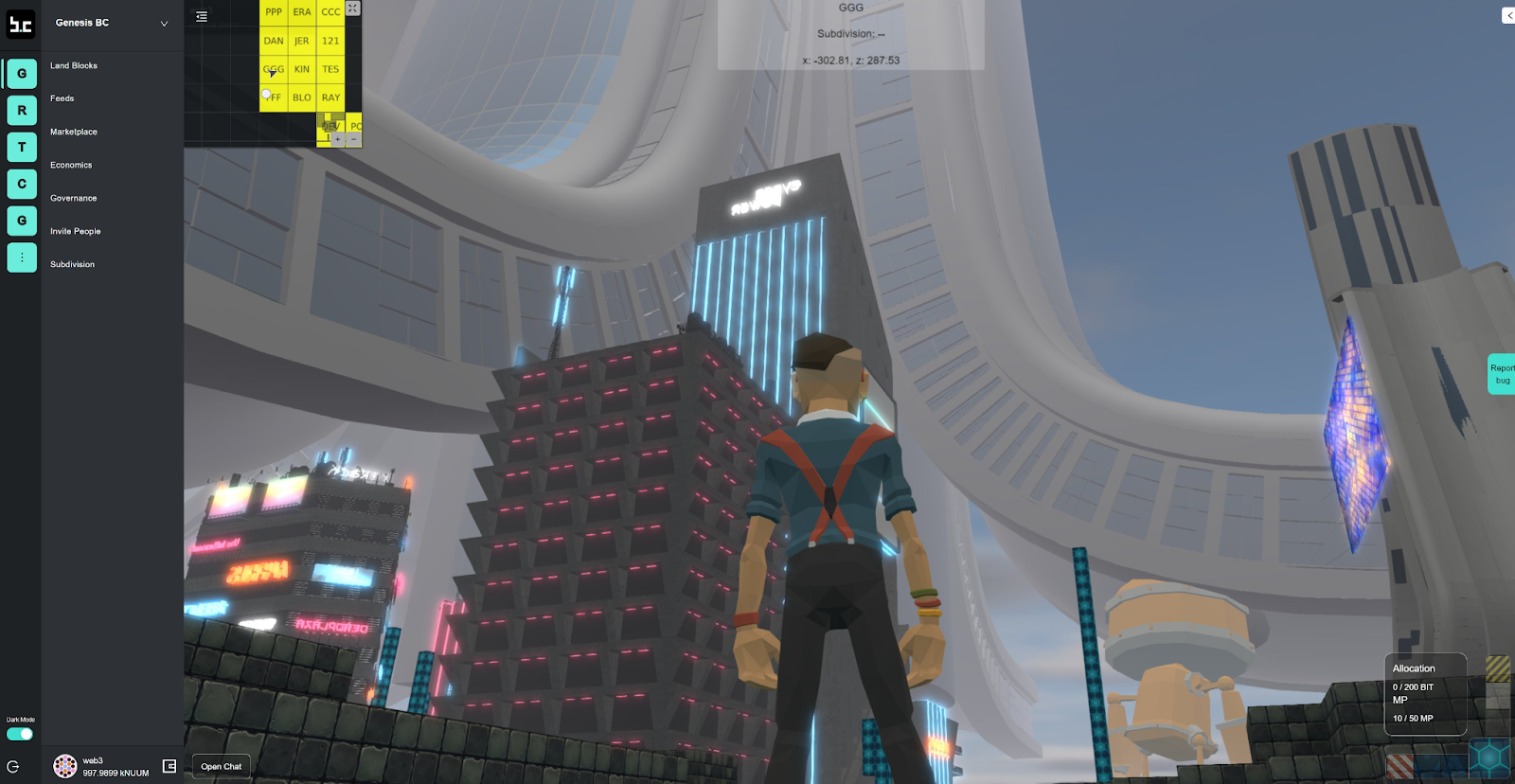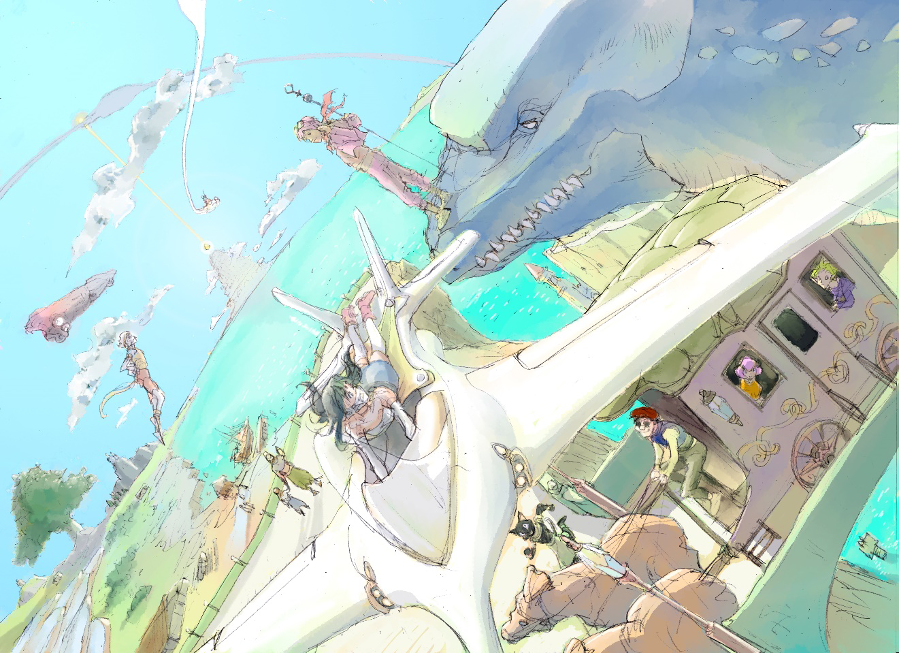
The post The Emerging Real Estate Market: Virtual Land appeared first on Coinpedia – Fintech & Cryptocurreny News Media| Crypto Guide
There’s the old adage about real estate: “Location, location, location.”
This is still true today, perhaps more than ever. What has changed, however, is the definition of “location”. With the emergence of blockchain, and non-fungible tokens (NFTs) in particular, the mechanism for buying and selling digital land is now possible.
Because NFTs are secure on the blockchain, are decentralized so that bureaucratic regulations and hassles no longer exist, and are unique—hence the “non-fungible” part of the name—NFTs are perfectly suited to act as a digital deed for the property, digital or physical.
This mechanism has caused the blockchain industry to begin growing a number of platforms designed for users to purchase their own digital land and enjoy the perks offered by the platform.
This can range from being able to walk around virtually on your land, build things, start a real business, and even achieve citizenship.
Given this is a very new market, it is exciting to see what possibilities lie ahead for the world of digital lands, communities, and worlds.
Let’s take a look at two of the more prominent platforms that are in the final stages of launching their own digital worlds, and see what each platform offers.
The two are very different in their approach to digital worlds and how their citizens can interact within it. However, there are common themes such as belonging, freedom to create, real economic opportunities, and a sense of adventure.

Source: Bit.Country Whitepaper
Bit.Country
The Bit.Country platform (see demo here) doesn’t seem to believe in starting small. Their overarching goal is to create a “metaverse of metaverses”.
They also don’t believe they should be doing all the work to build it, which is why they have focused on the development of tools for their landowners to use, designing and building on their own virtual lands.
They even coined the term ‘Metaverse-as-a-Service’ (MaaS). In some ways it feels like Minecraft meets Sim City, but with real economic opportunities. The whitepaper already has a significant amount of details around what the users can do once they’ve bought a plot of land, and how the land economics work.
The business model is as close as you can get to a DIY metaverse, but with a wide range of guides and tools to allow even non-technical users to set up their world in whatever way their creativity takes them.
Owners can create features for their visitors to socialize, trade, purchase services, and attend events. The platform has plans to support VR in the near future, making it a fully immersive experience.
Once a person purchases a block of land, of which there will be a total of 100,000, they can start to create their own metaverse.
One block of land can be divided into 100 subdivisions, allowing for ease of building but also potential leasing.
Owning land means that users can mine for BIT, giving fuel to run their metaverse. Building on the subdivisions, owners can place buildings (3D models), virtual dApps, NFTs, and other smart assets on the land.
Within the buildings owners can create interior spaces for things like events, their own local marketplace to sell dApp services or their collection of NFTs.
The Bit.Country team states that they are considering adding a basic template for owners to start with if they choose, along with themes to help them finish their customized land more quickly.
In a truly meta move, the platform also intends to allow owners to develop their own social coin and governance within their metaverse, which would expand the larger blockchain ecosystem considerably.

DEA
Digital Entertainment Asset Pte Ltd (DEA) is a Singapore based platform focused on blockchain and multimedia digital entertainment.
They are in the process of launching their own version of digital land, and though not a lot of details have been released yet, you can get a sense of what their world might be by looking at what they have created up to this point.
DEA has grown exponentially in a short time thanks to a series of successful blockchain-based games.
Their key service is called PlayMining, where “PlayMiners” (the users) can select a number of games where they receive rewards by completing adventures, quests, and card-based games.
The current lineup of games includes JobTribes, a trading card game where ordinary “occupations” from around the world have been converted into the game’s characters, with thematic special skills for each.
Lucky Farmer is a game where users earn medals by harvesting crops, with the ability to increase earnings by teaming up with others.
PlayMining Puzzle x JobTribes is a block tapping game themed around the JobTribes characters, allowing users to earn rewards the better they play.
The platform also hosts an NFT auction for its users to buy and sell NFT assets.
Given this overall ecosystem of easy to play, whimsical Play-to-Earn games, their upcoming digital land should be very interesting.
What we know so far is that their project, called the PlayMining Verse, will host a variety of worlds called “Creator Nations”. Rather than purchase land directly, users can purchase DEAs Land NFT, which acts as a passport of sorts for a given Creator Nation.
Their first NFT of this nature will release soon. The exciting part of this is that famous Manga artist Fujiwara Kamui is the creator, and those who can purchase a Land NFT will not only have an impressive collectable, but they will become citizens of Kamui’s own Creator Nation.
Called Fujiwara Kamui Nation, this world is described as “Genesis of the Earth, a planet where gods and goddesses cohabit with humanity.” Kamui says that several gods and goddesses will “collaborate with obedient mortals to strive to build a perfect world.”
There have been several concept art pieces released showing what this world might look like, and fans of Manga and open-world adventures will likely be clamoring to get one of the citizenship-granting NFTs.
Expect in-world quests and mini-games, social interactions, and marketplaces—all themed around the artist’s work.
Looking Ahead
As interesting as Bit Country and DEA are, we are just getting glimpses of what will be possible in the metaverses and their digital lands.
The ability for these and other platforms to continuously evolve, offer new services, and improve the value for owners is incredible and serves as a stark contrast between owning digital and physical land.
Platforms will need to ensure there is an element of scarcity with the land they create, ensuring that ownership isn’t diluted because a platform decides to create duplicate land to gain more revenue.
So far the platforms developing have been very clear about this, meaning the digital land will likely keep or increase its value over time.
One thing is for sure: Today’s location, location, location is in the digital world.
- "
- &
- 000
- 100
- 3d
- About
- Act
- Adventure
- All
- Allowing
- already
- amount
- approach
- around
- Art
- artist
- asset
- Assets
- Auction
- become
- being
- Bit
- Block
- blockchain
- blockchain industry
- blockchain-based
- build
- Building
- business
- business model
- buy
- Buying
- Can Get
- caused
- City
- Coin
- collection
- Common
- Communities
- concept
- country
- creator
- crops
- crypto
- Current
- dapp
- DApps
- DEA
- decentralized
- designing
- develop
- developing
- Development
- different
- digital
- Display
- Diy
- Doesn’t
- Earnings
- earth
- Economic
- Economics
- ecosystem
- emerging
- Entertainment
- estate
- events
- Expand
- experience
- Features
- fintech
- First
- focused
- Freedom
- Fuel
- future
- game
- Games
- getting
- Giving
- goal
- governance
- Growing
- Guides
- help
- How
- HTTPS
- Humanity
- immersive
- improve
- Increase
- industry
- IT
- Key
- landowners
- larger
- launching
- leasing
- local
- location
- looking
- Making
- Market
- marketplace
- meaning
- Meta
- Metaverse
- metaverses
- model
- models
- move
- Nature
- Near
- New Market
- news
- NFT
- NFTs
- non-fungible
- non-fungible tokens
- offer
- Offers
- opportunities
- Other
- owners
- passport
- perhaps
- physical
- planet
- platform
- Platforms
- Play
- possibilities
- possible
- process
- project
- prominent
- property
- purchase
- purchases
- quests
- quickly
- range
- real estate
- receive
- regulations
- release
- revenue
- Rewards
- Run
- secure
- sell
- sense
- Series
- service
- Services
- set
- Short
- significant
- SIM
- Singapore
- skills
- small
- smart
- So
- Social
- spaces
- start
- States
- successful
- support
- team
- teaming up
- the world
- time
- today
- today’s
- Tokens
- tools
- trade
- Trading
- use
- users
- value
- Virtual
- vr
- What
- Whitepaper
- WHO
- within
- Work
- world
- world’s
- X













